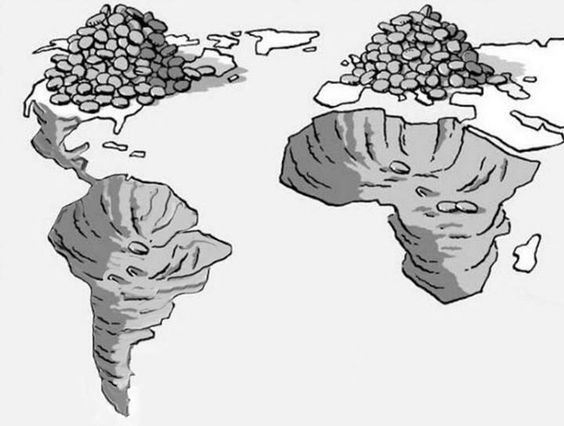 Image 1: World Bank political cartoon, By Mick James. Source: thenewworker.org
Image 1: World Bank political cartoon, By Mick James. Source: thenewworker.org
INTRODUCTION
This blog will explore how the World Trade Organization and other financial assistance institutions have imposed their neo-colonial, western agendas onto the Global South. These establishments have played a role in their impoverishment and disparity. This paper’s analysis will explore how neo-imperialistic interventions have destroyed third world countries natural, local economies. Also, it will explain how the corrosion of these lucrative localities put third world women in economically vulnerable positions. It will critique and dispel pervasive narratives regarding the facilitation of human trafficking. I will include personal reflections about my native country, Uganda throughout this blog. I will do this to illustrate how the state is an active and willing participant in the exploitation of human labour.
 Image 2: Occupy Nigeria movement at the World Bank, Washington D.C. Source: nigerianssavingnigerians.org
Image 2: Occupy Nigeria movement at the World Bank, Washington D.C. Source: nigerianssavingnigerians.org
Image 3: Demonstrators hold a protest about the World Trade Organization’s policies on agriculture in Indonesia. Source: Britannica.com
In the reading, China’s Transition and Feminist Economics, Breik, Dong and Summerfield (2007) discuss how China’s inclusion into the World Trade organisation required that the country would agree to undergo transitional reforms. Wealthy nations own financial institutions such as the International Monetary Fund (IMF) and the World Bank. Alam, Houssain, Chowdhury and Techera (2012) explain how these establishments impose strangulating policies and laws on the Global South to favour their interests. For example, a third world country asking for a loan from the World Bank will be told, that to receive funding that they need to implement agro-industrial businesses. The industrialisation of agriculture and food is a western concept. This process involves genetically modified organisms. Also, the excessive use of pesticides and herbicides. Indigenous populations within the Global South practice sustainability and co-habitation. However, the continuous use of these chemicals causes ecological devastation. They also impact how the local communities provide sustenance for themselves. The industrialisation of agriculture also affects the livelihoods of the local women, who find it difficult to compete with emerging supermarkets. Third world women’s domestic, informal economies allow for them to be economically autonomous. “Informal economies are deeply rooted in people’s cultural practices. (Kinyanjui, 2014, p.45) Also, traditionally women in the Global South “are important in both productive and reproductive spaces.” (Kinyanjui, 2014, p.45) Neo-colonial domination excludes third world women from these sectors. Also, the Global South faces crippling debt when they borrow money from institutions such as the IMF, World Bank and the World Trade Organization. “This form of strangulating economics is designed to end to any development taking place in the South’s local economies.”(Alam, Houssain, Chowdhury and Techera, 2007, p.82) Neo-imperial policies and agenda have been instrumental in the creation of economic disparity and impoverishment within the Global South.
HUMAN TRAFFICKING AND THE STATE
Alam, Houssain, Chowdhury and Techera (2012) discusses how third world nations tackle the debt they have accrued through the exportation of their local goods and services. Svati Shah (2007) explains how poverty and human trafficking are inextricably linked. She elaborates by pointing out how those who are “economically vulnerable are rendered as non-agentive beings who rely on illegal and underground strategies as means of economic survival.”(Shah, 2007, p.442) In May of this year, I visited my family in Kampala, Uganda. While watching the local news I noticed a lot of segments that covered human trafficking of Ugandan women to the Middle East. In 2015, President Museveni signed an agreement with the United Arab Emirates allowing for Ugandan post-graduates to seek employment in Saudi Arabia as domestic workers. The government advertised this agreement as a way for the unemployed youth to acquire incomes, which they can repatriate home. However, since this deal was signed, there have been countless cases of Ugandan women who have reported inhumane mistreatment. There are numerous accounts of women who have come forward about being subjected to torture, physical, emotional and sexual abuse. In addition, there have been an alarming amount of trafficked Ugandan women in the Middle East who have mysteriously been murdered, gone missing or committed suicide. Museveni has banned the exportation of Ugandan labour to the Middle East, due to the national backlash. However, he has repeatedly lifted these bans, allowing for the cycle of exploitation to reoccur. The Ugandan President is a prime example how the state can be a facilitator of human trafficking.
Video link 1: Working Abroad: Forty-Eight Ugandans have died this year in the Middle East- Report by Herbert Zziwa. Source: NTVUganada
References
Alam, S., Hossain, B. J., Chowdhury, T. M., & Techera, E. J. (Eds.). (2012). Routledge handbook of international environmental law. Retrieved from https://ebookcentral.proquest.com
Günseli Berik, Xiao-yuan Dong & Gale Summerfield (2007) China’s Transition and Feminist Economics, Feminist Economics, 13:3-4, 1-33, DOI:10.1080/13545700701513954 http://www-tandfonline-com.ezproxy.library.ubc.ca/doi/pdf/10.1080/13545700701513954?needAccess=true
Kinyanjui, Mary Njeri. (2014) “The Quest for Spatial Justice: From the Margins to the Centre.” In Women and the Informal Economy in Urban Africa: From the Margins to the Centre, 115, 87-98. London: Zed Books. http://genderandsecurity.org/sites/default/files/Kinyanjui__Women_The_Informal_Economy_in_Urban_Africa_.pdf
Olubukola S. Adesina (2014) Modern day slavery: poverty and child trafficking in Nigeria, African Identities, 12:2, 165-179, DOI: 10.1080/14725843.2014.881278 http://www-tandfonline-com.ezproxy.library.ubc.ca/doi/pdf/10.1080/14725843.2014.881278?needAccess=true
Shah P. Svati (2007) Distinguishing between poverty and trafficking: Lessons from field research in Mumbai, Georgetown Journal of Poverty, Policy and Law 14 (3): 441-454.http://heinonline.org.ezproxy.library.ubc.ca/HOL/PrintRequest?collection=journals&handle=hein.journals/geojpovlp14&div=25&print=section&format=PDFsearchable&submit=Print%2FDownload&id=450


